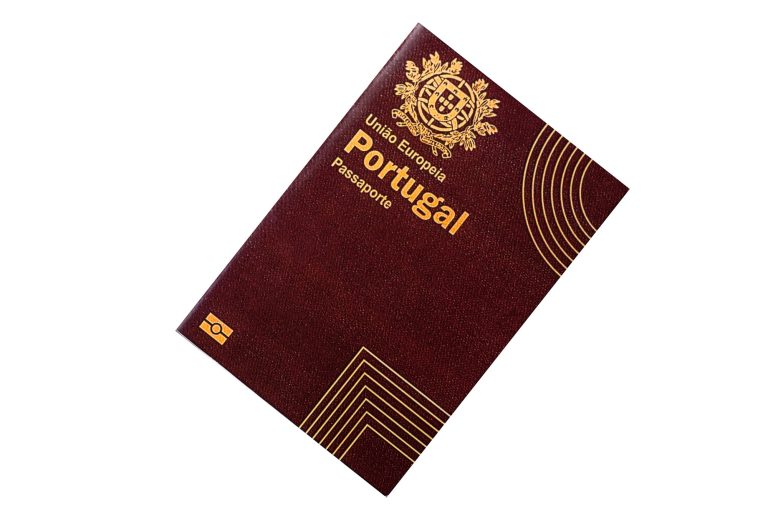Getting Married in Portugal: Complete Guide for Expats 2025
Planning to tie the knot in Portugal? Whether you’re an expat living in this beautiful country or dreaming of a destination wedding, understanding the Portuguese marriage process is essential. This comprehensive guide will walk you through everything you need to know about getting married in Portugal as a foreigner, from legal requirements to property regimes and costs.
Marriage Requirements for Foreigners in Portugal
Getting married in Portugal as a foreigner is relatively straightforward, but you’ll need to meet specific requirements and follow the proper procedures. Portuguese legislation allows foreigners living in Portugal to marry either at the Portuguese civil registry or at their home country’s embassy or consulate.
The Portuguese government has established clear guidelines to ensure that all marriages performed within its borders are legally valid and recognized. Whether you’re a resident with a visa or planning a destination wedding, understanding these requirements is your first step toward a successful marriage in Portugal.

One of the most important aspects to consider is your legal capacity to marry. Portugal requires proof that you’re legally free to marry, which means you must demonstrate that you’re not currently married and that there are no legal impediments to your union. This requirement applies to all foreigners, regardless of their country of origin or current residence status.
Access Portugal has helped countless expat couples navigate the marriage process, and we’ve seen firsthand how proper preparation can make all the difference. The key is understanding what’s required and gathering your documents well in advance.
The Step-by-Step Marriage Process
The marriage process in Portugal begins with a formal declaration of your intent to marry, known as the “processo de casamento.” This crucial first step must be completed at a civil registrar’s office (Conservatória do Registo Civil), and you can do this either in person or through an attorney.
Step 1: Declaration of Intent to Marry
You and your partner must visit the civil registry office together to declare your intention to marry. During this visit, you’ll need to specify:
- The type of ceremony you want (civil, Catholic, or other recognized religious ceremony)
- Your preferred date, time, and location for the wedding
- The marital property regime you wish to adopt
This declaration sets the entire process in motion and establishes the legal framework for your upcoming marriage. Brazilian citizens who have obtained equal rights and duties status enjoy a unique privilege – they can complete this process online, making it even more convenient.
Step 2: Document Submission and Verification
After declaring your intent, you’ll submit all required documents to the registrar. The office will carefully review your paperwork to ensure everything is in order and that there are no legal impediments to your marriage.
The verification process typically takes several weeks, during which the registrar may request additional documentation or clarification if needed. It’s during this phase that having all your documents properly prepared and translated becomes crucial.
Step 3: Publication of Banns
Once your documents are approved, the registrar will publish the banns of marriage. This traditional practice involves publicly announcing your intended marriage, allowing anyone with legal objections to come forward. The publication period usually lasts 30 days.
Step 4: Authorization and Scheduling
If no impediments are found during the publication period, the Civil Registrar will authorize your marriage. This authorization is valid for six months, giving you flexibility in scheduling your ceremony. If you’ve chosen a religious ceremony, you’ll receive documentation to provide to your parish priest or minister.
Essential Documents for Marriage in Portugal
Gathering the correct documentation is perhaps the most critical aspect of getting married in Portugal. The required documents ensure that your marriage is legally valid and can be recognized both in Portugal and internationally. Here’s what you’ll need:
Primary Identification Documents
Your residence permit, passport, or equivalent identification document is essential. This proves your identity and legal status in Portugal. If you’re residing in Portugal on a visa, make sure it’s valid throughout the marriage process.
Birth Certificate Requirements
You’ll need a recently issued birth certificate – specifically, one issued no more than six months before your application. This document must be:
- An official copy from your country of origin
- Properly apostilled (for countries that are party to the Hague Convention)
- Translated into Portuguese by a certified translator
- Authenticated by the Portuguese consulate if your country isn’t part of the Hague Convention
The birth certificate requirement ensures that the registrar has accurate information about your identity, parentage, and place of birth, all of which are legally significant for marriage registration.
Certificate of Matrimonial Capacity
Many countries issue certificates of matrimonial capacity (also known as a certificate of no impediment), which confirms that you’re legally free to marry. This document must be:
- Issued less than six months before your marriage application
- Properly legalized or apostilled
- Translated into Portuguese if necessary
British citizens benefit from a special exemption and don’t require this certificate. However, they may need to provide alternative documentation, such as a statutory declaration or affidavit. Check with your embassy or consulate for specific requirements based on your nationality.
Additional Documents for Special Circumstances
If you’ve been previously married, you’ll need to provide:
- Divorce decree (final and absolute)
- Death certificate of former spouse (if widowed)
- Annulment documentation (if applicable)
For those planning to establish a prenuptial agreement, this document must be prepared by a Portuguese notary and submitted with your marriage application. The agreement allows couples to choose a property regime different from the default option, provided it stays within legal boundaries.
Understanding Portuguese Marital Property Regimes
One of the most important decisions you’ll make when marrying in Portugal is choosing your marital property regime. This choice determines how assets and debts are managed during your marriage and distributed in case of divorce or death. Portugal offers three main property regimes, each with distinct characteristics and implications.
The Accrual System (Comunhão de Adquiridos)
The accrual system is Portugal’s default marital property regime. If you don’t specify otherwise, this is the regime that will automatically apply to your marriage. Under this system:
Each spouse maintains full ownership of assets and property acquired before marriage. This includes inheritances and donations received during the marriage, which remain individual property. However, all assets acquired after marriage through the couple’s work or joint efforts become shared property.
This regime strikes a balance between individual autonomy and marital partnership. It protects pre-marital assets while recognizing that wealth generated during the marriage results from the couple’s joint efforts. Many expats find this regime appealing because it offers both protection and partnership.
The accrual system works particularly well for couples who enter marriage with established careers and some individual assets. It allows them to maintain their financial independence while building a shared future together.
General Community Property (Comunhão Geral)
The general community property regime represents the most comprehensive form of asset sharing between spouses. Under this system, virtually all assets – whether acquired before or after marriage – become joint property. This includes:
- Pre-marital assets and property
- Assets acquired during marriage
- Inheritances and donations (with some exceptions)
- Income from work or investments
This regime has significant restrictions. Couples cannot choose general community property if either spouse has children from previous relationships. This protection ensures that children’s inheritance rights aren’t compromised by their parent’s new marriage.
Separation of Property (Separação de Bens)
The separation of property regime maintains complete financial independence between spouses. Each person owns and manages their assets individually, both those acquired before and during marriage. There’s no shared ownership of property under this regime.
This regime is mandatory in certain situations:
- When one spouse is over 60 years old
- When required by law due to specific circumstances
- When chosen voluntarily by the couple
Many international couples moving to Portugal choose this regime, especially when they have complex international assets or significant wealth disparities.
Creating a Custom Property Regime
Portuguese law allows couples to design their own property regime through a prenuptial agreement, as long as it respects legal boundaries. This flexibility enables couples to create arrangements that suit their specific circumstances.
Custom regimes might include:
- Specific provisions for international assets
- Special arrangements for business ownership
- Protections for children from previous relationships
- Unique distribution formulas for shared expenses
Working with a Portuguese notary is essential when creating a custom regime. They’ll ensure your agreement complies with Portuguese law and properly protects both parties’ interests.
Types of Wedding Ceremonies Available
Portugal recognizes three types of wedding ceremonies, each offering different experiences while maintaining the same legal validity. Understanding your options helps you choose the ceremony that best reflects your values and preferences.
Civil Ceremonies
Civil ceremonies are conducted by a civil registrar and represent the most straightforward path to marriage in Portugal. These ceremonies can take place:
- At the civil registry office during regular hours
- At an approved venue of your choice (with additional fees)
- In Portuguese, with translation services available if needed
Civil ceremonies are typically brief, focusing on the legal aspects of marriage. They’re perfect for couples who prefer a simple, efficient process or plan to have a separate celebration later. The registrar will read the relevant legal provisions, confirm your consent to marry, and officially pronounce you married.
Catholic Weddings
Portugal’s strong Catholic heritage means that Catholic weddings are fully recognized by civil law. If you choose a Catholic ceremony, you’ll need to:
- Complete the civil registry process first
- Obtain authorization from the civil registrar
- Meet with your parish priest for pre-marriage preparation
- Provide the priest with civil authorization documents
Catholic ceremonies offer the full traditional experience, including religious rituals, blessings, and the sacramental nature of marriage. The church will handle the civil registration after the ceremony, making the process seamless.
Other Religious Ceremonies
Portugal recognizes marriages performed by other registered religious denominations. These include:
- Protestant churches
- Jewish synagogues
- Islamic ceremonies
- Other recognized religious communities
To have a non-Catholic religious wedding, the officiant must be registered with Portuguese authorities. You’ll follow a similar process to Catholic weddings, obtaining civil authorization first and then proceeding with your religious ceremony.
Marriage Costs and Fees in Portugal
Understanding the financial aspects of getting married in Portugal helps you budget appropriately for your special day. The Portuguese government has established standard fees for marriage-related services, though costs can vary based on your specific choices.
Basic Registration and Processing Fees
The standard cost for processing and registering a marriage in Portugal is €120. This covers:
- Initial application processing
- Document verification
- Marriage registration
- Official marriage certificate
This fee applies to standard marriages conducted during regular business hours at the civil registry office. It’s remarkably affordable compared to many other European countries, making Portugal an attractive option for destination weddings.
Additional Service Fees
If you want to customize your ceremony or require special services, additional fees apply:
Premium Ceremony Options (€200):
- Ceremonies outside the registry office
- Weekend ceremonies (Saturday, Sunday, or holidays)
- Ceremonies outside regular business hours
- Expedited processing for urgent cases
These premium options offer flexibility for couples who want to marry at a specific venue or accommodate guests’ schedules. Many couples find the additional cost worthwhile for the convenience and personalization options.
Prenuptial Agreement Costs
If you’re establishing a prenuptial agreement, fees vary based on complexity:
- Standard regime selection: €100
- Custom property regime: €160
- Future regime changes: €30
These fees cover the notarial services required to make your agreement legally binding. Given the importance of property regimes in Portuguese marriage law, many couples consider this a wise investment.
Translation and Document Preparation
While not official government fees, you should budget for:
- Document translation services
- Apostille or legalization fees
- Notarial services in your home country
- Legal consultation fees
Access Portugal can help you estimate these costs based on your specific situation and nationality. Proper budgeting ensures no surprises during your marriage preparation process. 💰
Recognizing Your Portuguese Marriage Abroad
One of the most important considerations for expats marrying in Portugal is ensuring their marriage will be recognized in their home country and anywhere else they might live. Fortunately, Portuguese marriages generally enjoy broad international recognition.
Recognition Within the European Union
If you’re an EU citizen, your Portuguese marriage will automatically be recognized in all other EU member states. This mutual recognition is one of the fundamental principles of EU law, ensuring that civil status documents are valid across borders.
However, there’s one notable exception: same-sex marriages. While Portugal has recognized same-sex marriage since 2010, some EU countries still don’t recognize these unions. If you’re in a same-sex relationship, research the specific laws in any country where you plan to live or travel.
Even with automatic recognition, it’s advisable to register your Portuguese marriage in your home country. This registration:
- Creates a local record for easier access
- Simplifies future administrative procedures
- Helps with name changes or other legal matters
Recognition for Non-EU Citizens
For citizens of countries outside the EU, marriage recognition depends on bilateral agreements and national laws. Most countries recognize foreign marriages if they were legally performed, but the process for registration varies significantly.
Steps to ensure recognition typically include:
- Obtaining an International Marriage Certificate: Portugal can issue multilingual marriage certificates that are easier for foreign authorities to understand and process.
- Apostille or Legalization: Depending on your country’s requirements, you may need to have your marriage certificate apostilled (for Hague Convention countries) or legalized through diplomatic channels.
- Consular Registration: Contact your country’s consulate in Portugal to understand their specific requirements for registering your marriage. Some consulates can handle this process directly, while others require you to submit documents to authorities in your home country.
- Translation Requirements: Many countries require official translations of your Portuguese marriage certificate. Ensure you use certified translators recognized by your home country’s authorities.
Practical Considerations for International Couples
International couples face unique challenges when it comes to marriage recognition. If you and your partner are from different countries, you may need to register your marriage in multiple jurisdictions. Consider:
- Which country’s passport you’ll use for travel
- Where you plan to live long-term
- Tax implications in different countries
- Inheritance laws and estate planning
- Social security agreements between countries
Access Portugal regularly assists international couples with these complex situations. We recommend consulting with legal professionals in all relevant countries to ensure your marriage is properly recognized and your rights are protected globally.
Special Considerations for Different Nationalities
While the basic marriage process in Portugal remains consistent, different nationalities face unique requirements and considerations. Understanding these nuances helps ensure a smooth marriage process regardless of your origin.
British Citizens
British citizens enjoy certain simplified procedures when marrying in Portugal. Most notably, they’re exempt from providing a certificate of matrimonial capacity. Instead, British citizens typically need to:
- Swear an affidavit at the British Consulate
- Provide additional documentation about their single status
- Complete a statutory declaration if required
Post-Brexit changes have created some additional considerations for British citizens. While the marriage process itself remains largely unchanged, residence rights and visa requirements have evolved.
Brazilian Citizens
Brazilians with equal rights and duties status in Portugal benefit from streamlined procedures. They can:
- Complete the initial declaration process online
- Use simplified documentation procedures
- Access expedited processing in many cases
This special relationship between Portugal and Brazil, based on historical and cultural ties, makes the marriage process particularly accessible for Brazilian nationals.
CPLP Country Citizens
Citizens from Community of Portuguese Language Countries (CPLP) often benefit from simplified procedures due to bilateral agreements. These countries include:
- Angola
- Brazil
- Cape Verde
- Guinea-Bissau
- Equatorial Guinea
- Mozambique
- São Tomé and Príncipe
- Timor-Leste
Each country has specific agreements with Portugal that may simplify documentation requirements or recognition procedures.
US Citizens
American citizens marrying in Portugal typically need to:
- Obtain an affidavit of marriageability from the US Embassy
- Provide extensive documentation about previous marriages (if applicable)
- Ensure proper apostille certification for all documents
- Consider tax implications of marriage abroad
The US Embassy in Lisbon provides notarial services that can assist with document preparation, making the process more manageable for American citizens.
Asian and Middle Eastern Citizens
Citizens from Asian and Middle Eastern countries often face additional documentation requirements, particularly regarding:
- Authentication of documents through diplomatic channels
- Extended translation requirements
- Proof of religious or cultural marriage customs
- Verification of single status
Some countries require additional steps to ensure marriages performed abroad are recognized under their national laws. This might include pre-registration requirements or specific ceremonial elements.
Frequently Asked Questions
How long does the marriage process take in Portugal?
The typical timeline from initial application to ceremony is 6-8 weeks. This includes document submission, verification, publication of banns (30 days), and scheduling your ceremony. However, processing times can vary based on nationality and document complexity. If you need to obtain documents from abroad or require extensive translations, plan for additional time.
Can we get married in Portugal if we don’t live there?
Yes, you can marry in Portugal even if you’re not residents. However, you’ll need to provide additional documentation proving your single status and may face longer processing times. Many couples choose Portugal for destination weddings due to its beautiful venues and relatively straightforward process for non-residents. Working with a local coordinator or agency like Access Portugal can significantly simplify the process.
What if my divorce isn’t finalized yet?
You cannot begin the marriage process in Portugal until your divorce is completely finalized. Portuguese authorities require the final divorce decree, not just proof that proceedings have begun. If your divorce is pending, wait until you receive the final decree before starting your Portuguese marriage application. Attempting to marry before your divorce is final could result in criminal charges for bigamy.
Do we need to speak Portuguese for the ceremony?
While civil ceremonies are conducted in Portuguese, you can arrange for an interpreter if needed. The registrar must ensure you understand the legal implications of marriage, so translation services are often available. For religious ceremonies, many priests and ministers in tourist areas speak English or can arrange translation. The key is communicating your language needs when scheduling your ceremony.
Can same-sex couples marry in Portugal?
Yes! Portugal has recognized same-sex marriage since 2010, making it one of the early adopters of marriage equality. Same-sex couples follow the exact same process as opposite-sex couples, with full legal recognition and rights. Portugal’s progressive stance on LGBTQ+ rights makes it a popular destination for same-sex weddings. 🏳️🌈
What happens if we want to change our property regime after marriage?
You can change your marital property regime after marriage, but it requires mutual consent and legal proceedings. The process involves:
- Filing a petition with the civil registry
- Paying a €30 fee
- Potentially notifying creditors
- Obtaining court approval in some cases
Changes to property regimes can have significant legal and tax implications, so consulting with a Portuguese lawyer is advisable.
How long is the marriage authorization valid?
Once the Civil Registrar authorizes your marriage, you have six months to hold your ceremony. If you don’t marry within this period, you’ll need to restart the process. This timeline provides flexibility while ensuring your documents remain current. If unexpected circumstances delay your wedding, contact the registry immediately to discuss your options.
Do we need witnesses for our wedding in Portugal?
Yes, Portuguese law requires two witnesses for your wedding ceremony. Witnesses must be:
- At least 18 years old
- Mentally competent
- Able to understand the language of the ceremony
- Not directly related to the couple (in some cases)
Witnesses can be friends, family members, or even strangers willing to help. Some venues can arrange witnesses if you’re having a destination wedding without local contacts.
Conclusion: Making Your Portuguese Wedding Dream Reality
Getting married in Portugal offers expats and international couples a wonderful blend of bureaucratic efficiency and romantic possibility. From the sun-drenched beaches of the Algarve to the historic castles of Sintra, Portugal provides stunning backdrops for your special day while maintaining a clear, accessible legal framework for international marriages.
The key to a successful marriage process in Portugal lies in understanding the requirements, gathering your documents early, and choosing the right property regime for your circumstances. Whether you’re long-term residents building a life in Portugal or couples choosing Portugal for a destination wedding, the country’s marriage laws accommodate diverse situations and nationalities.
Remember that while the process might seem complex, especially when dealing with international documentation and translations, thousands of foreign couples successfully marry in Portugal each year. The investment in proper preparation pays dividends in avoiding delays and ensuring your marriage is recognized globally.
Access Portugal specializes in guiding international couples through every step of the marriage process. From document preparation and translation to understanding property regimes and ensuring international recognition, our expertise helps make your Portuguese wedding dreams a reality. We understand that marriage is one of life’s most important decisions, and we’re here to ensure the legal aspects don’t overshadow the joy of your celebration.
Ready to begin your marriage journey in Portugal? Contact Access Portugal today for personalized assistance with your marriage process. Our team of experts will help you navigate the requirements, prepare your documents, and ensure your special day goes smoothly. Let us handle the paperwork while you focus on planning your perfect Portuguese wedding! 💑







